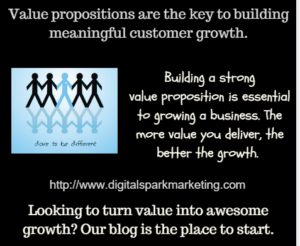E-commerce is the concept of transacting or facilitating business online. In other words, eCommerce means selling products or services online. The key to success for e-commerce content marketing is reaching a wider target audience.
E-commerce content marketing
We do that through search engine optimization, link building, tons of social media activity, online ads, and so on. Content marketing is related to all these activities.
Developing a successful eCommerce content marketing strategy can be quite hard, but it may also be simple. We’d all opt for the simple way, right? Here’s how the simple way goes: learn everything about eCommerce content marketing and develop a strategy that you’ll follow.
This ultimate guide to eCommerce content marketing will set you on the right track.
Set Clear Goals

A thorough process of planning is necessary, and it involves several elements:
What goals should your content meet?
If, for example, you intend to increase the traffic via search engines, you’ll focus on SEO throughout your content marketing campaign. You’ll start building backlinks to product pages, and you’ll focus on producing informative blog posts that show up in Google’s results.
Maybe your main goal is to connect with your target audience and boost their engagement. In that case, you’ll produce informative blog posts and videos, with the purpose to educate them about the products or services they can buy at your website. If, for example, you sell blenders, you will teach people how to choose the best one for their needs, and you’ll provide some recipes and user guides.
One of the most common goals that eCommerce website owners have is to boost the sales and conversion rates. You can achieve that through a well-planned content marketing campaign, too.
What’s Your Buyer Persona?
You probably identified your buyer persona before you even started the eCommerce business. It’s a representation of the most common interests and behaviors of your entire target audience. Find out what type of content that persona wants to read, see, or listen to. Every piece of content you produce will be targeted towards that persona.
How Often Will You Distribute Content?
Consistency is crucial for successful content marketing. You need a content calendar, where you’ll plan all publish dates and topics. How many posts are you going to publish per week or month? Figure out your availability to write or your ability to pay writers to write.
Who Will Write and Edit?
As the owner of an eCommerce site, do you have time to produce content? Do you have the skill? If yes, then go for it! If no, hire freelance writers through platforms like Upwork, so you’ll have a great team before you engage in the content marketing campaign.
However, you might need editors. High-quality content requires detailed checkups before you can publish it on your website. Connect with professional editors from proofreading services like Superior Papers to make sure your content is flawless.
Where Will You Publish the Content?
First of all, you’ll need to add a blog section to your website. However, you’ll also need to distribute content via other channels. What are your plans regarding guest posting and social media advertising?
Will You Connect with Influencers?
Are you interested in getting sponsored posts from influential bloggers? Maybe you’ll want to connect with influential Instagrammers, who will promote your products or services through their profiles? If you intend to do so, include specific steps in your plan. Keep in mind that you’ll also need a budget for this, and budgeting takes more planning.
Start Producing Great Content
When you have your plan, you’ll be ready to start producing and sharing impressive content that will promote your business. There are few things to keep in mind during this process:
Must Be Unique
Your content must never have signs of plagiarism. Google will penalize your site for such practices. Always check the content via Copyscape or another plagiarism detection engine before you publish it.
Must Offer Value
When you’re trying to figure out what topics to tackle for your next posts, ask yourself: what does your audience want to get? What problem does your buyer persona have? How can your products or services solve those problems? How will your website offer a better experience when compared to competitive offers?
You should analyze the competition, so you’ll realize how you can attract more visitors to your website. However, you must write about the same things they’ve already seen all around the web. Offer unique value! That’s the only way for the audience to recognize your brand through the content.
Create Branded Content
Remember: content marketing will support the branding process. You already have a brand. When you engage in eCommerce content marketing, you should evoke the spirit of that brand through every piece you publish.
Think about your brand’s vibe, humor, and unique approach to customer service. The content should be developed on that foundation.
Don’t Forget the Visual Elements
When we’re talking about content marketing, it’s easy for people to identify it solely with written content. In reality, visual content is even more successful in capturing the audience’s attention.
Videos may be an expensive investment, but you should consider having professional videos filmed for your brand.
Also, make sure to accompany each textual post with attractive photos. Content marketing gives you tons of space to feature the products you’re selling. The photos must be unique (don’t even think about stock photos!) and of amazing quality.
It Needs a Call to Action

Needs a call to action
Remember the goals you planned to achieve? Well, you have to translate them into actions you want your audience to take. If you intend to convert a reader into a buyer, you’ll have a “Buy It Now!” call to action at the end of a review or recommendation.
When you guide people in the direction you want them to take, your content marketing campaign will make sense.
Finally: Marketing
We’re talking about content marketing after all. What this means is that producing content is not enough. You have to promote that content across channels so that it will bring you results.
You’ll engage in social media promotion. Make sure to share all your posts on different platforms, and invite your followers to discuss them. Also, make sharing easy for them by adding social media buttons to each page at your website.
Consider email marketing! It’s a great way to distribute your content to people who are interested in it.
Consider engaging influencers! These people have a huge base of followers, who can become your customers.
Consider paid social media advertising for your posts! If you still don’t have a large base of followers, this will be a good way to reach more people with your content.
The bottom line
Planning, creating, and promotion – that’s the ultimate recipe for proper eCommerce marketing. Is that all? Well, you’ll have to add evaluation to your approach, too. You have to monitor the effectiveness of your campaign, so you’ll be able to make improvements on an ongoing basis.
